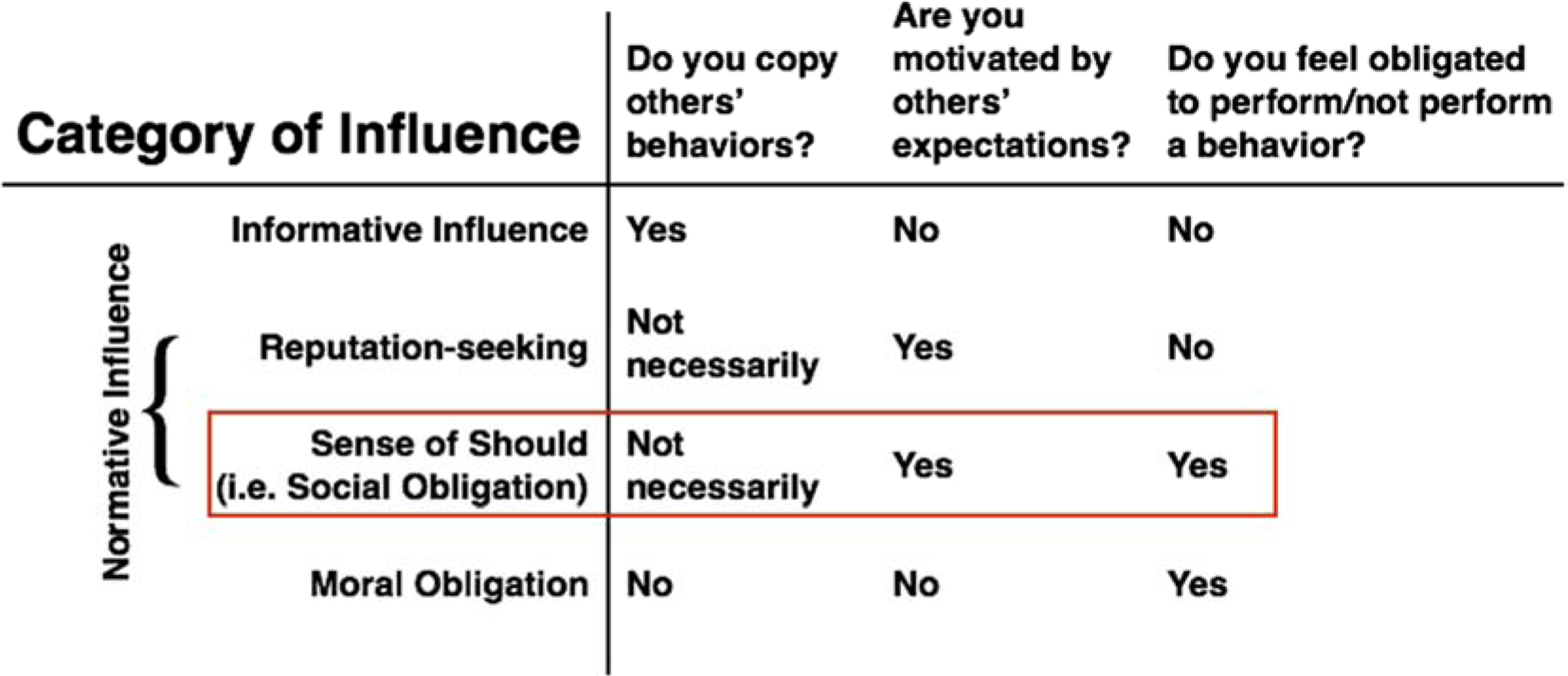Figure 1.

Diagram of relevant influences on behavior. Informative influence refers to the “wisdom of the crowd”, where an individual copies others’ behavior because she assumes they are knowledgeable (Deutsch & Gerard, 1955). Normative influence motivates compliance with others’ expectation, but it does not necessarily motivate copying their behaviors—i.e. an individual may copy others’ behavior to fit in socially (Asch, 1951; Deutsch & Gerard, 1955; Kelley, 1952), or she may help a victim because others expect her to (Schwartz & Gottlieb, 1976, 1980). Within normative influence, we distinguish reputation-seeking, where an individual explicitly aims to receive praise or avoid blame, from a sense of should, where an individual feels obligated to conform to others’ expectations. Moralobligation refers to cases where an individual feels obligated to perform a behavior, but is motivated by something besides others’ expectations (e.g. personal values; Schwartz, 1977). Note that a behavior (or category of behaviors) may be typically called “moral” (e.g. sharing) but the behavior could be motivated by any of these influences. This list of influences is also not exhaustive.
